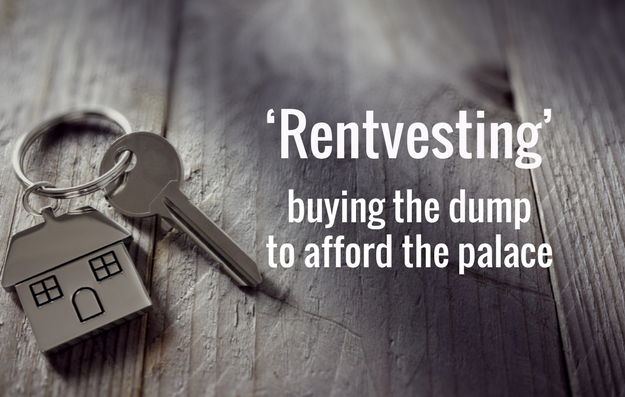For as long as anyone can remember, owning your own home has been the great Australian dream. Exactly why I’m not sure. The Europeans certainly don’t understand it.
Yes, living in a property you actually own can give you a warm and fuzzy feeling at night. And not having to deal with real estate agents for the foreseeable future is definitely a bonus. But how much are you willing to pay for this?
Okay, so the tax-free capital gains are pretty good too. But don’t forget that in certain circumstances you can live elsewhere and claim the primary residency CGT exemption on a property you rent out.
So here’s my question: Why do we insist on coming up with the same answer to these two questions?
- Where would be a great place for me and my family to live (in terms of schools, transport, travel to work, nightlife, etc)?
- Where should I make the largest financial investment of my life?
It’s time to think outside the investment square
Let’s say you have your heart set on living in Kirribilli. Good for you. But after doing your research[1], you conclude that Liverpool is the best place for you to invest. What should you do?
You may think you have only two choices:
- Buy a properly in Liverpool, and feel miserable living there because you don’t want to go out
- Buy a property in Kirribilli and feel miserable because you can’t afford to go out.
Don’t worry. You’re not the only one.
When it comes to property, Australians in general (and Sydneysiders in particular) need to start thinking outside the square. And not just because Sydney’s property prices are now the second most expensive in the world.
Let’s go back to our earlier scenario. You want to live in Kirribilli, but you also want to invest in Liverpool’s property market. So what’s stopping you from buying a property in Liverpool, and renting it out while you live in a rental property at Kirribilli?
As I write this, you can buy a two-bedroom, two-bathroom apartment with two car spaces in Liverpool for $500,000. After paying the $100,000 deposit, your interest-only repayments at 4% would be $16,000 per annum. But renting out the property at $450[2] a week would provide $23,400 in rental income—more than enough to cover the repayments. In fact, interest rates would have to increase to 5.85% before you’d need to start funding the property.
A family home vs. a rental property – a third option
Now let’s look at your options in Kirribilli.
You could buy a two-bedroom, one-bathroom apartment in Kirribilli right now for around $1.15m. But even if you had $230,000 available for the 20% deposit (as well as the stamp duty), at 4% interest the $920,000 loan would cost you $46,800 per annum, including fixed property expenses of $10,000. And if the interest rates normalised at 7.50%, that little two-bedroom apartment would cost you the better part of $80,000 a year.
But what if you rented the apartment for $990 a week instead, and invested in that property in Liverpool? Even with the rental income from the Liverpool property you’d still be out of pocket by $44,080—a bit less than if you’d bought your Kirribilli apartment.
But that’s only half of the story.
Assuming the rent will increase to $1,100 per week as interest rates increases (good ol’ supply and demand), if interest rates did settle back to 7.50% you’d save more than $15,000 per annum compared to buying it outright.
And that $15,000 could be the difference between drowning and staying afloat financially.
I don’t know where property prices are going. No-one does. And I’m certainly not trying to predict the end of a once-in-a-lifetime property bull market. I simply want you to understand that just because something has happened before doesn’t mean it will continue to happen.
Interest rates are at historical lows right now. But at some point economic growth and/or inflation will force that to change. And if you’re not currently paying off your home loan faster than you need to, you may not have enough wiggle room in your budget to deal with normalised interest rates.
Want to start making better financial decisions? Forget about the value of your home, and start focusing on the value of your loan instead.
[1] The extensive research everyone does (or should do) before subjecting themselves to a lifetime of debt.
[2] This is the net figure, not what you’d necessarily charge your tenants.



